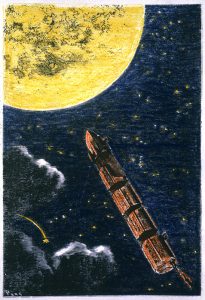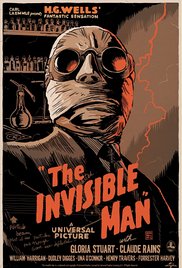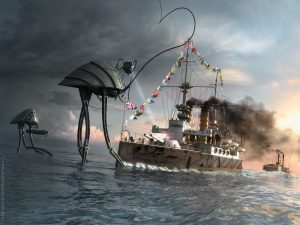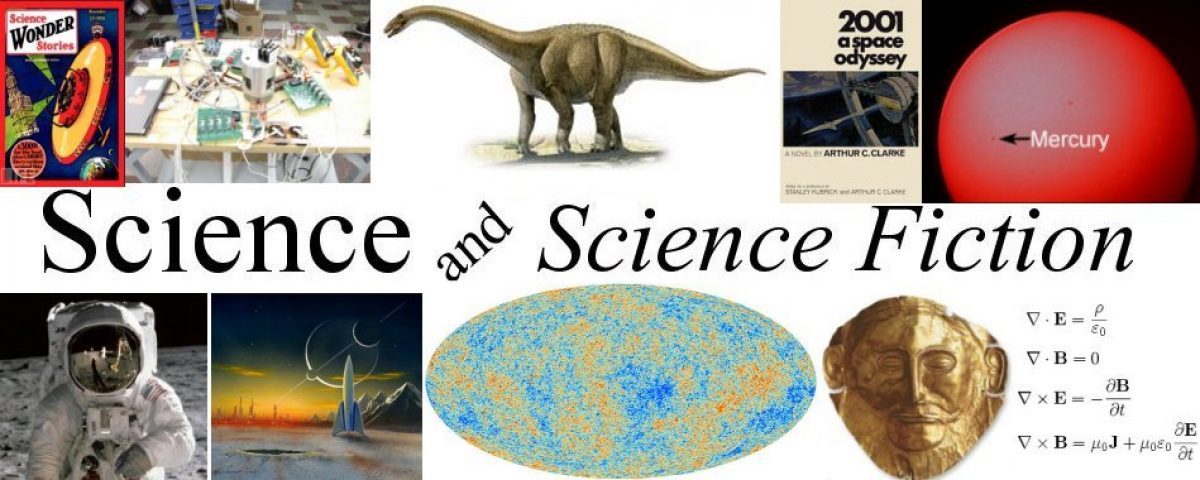Today I’d like to begin talking about great themes or big questions that Science Fiction allows us to think about and discuss in clearer, more precise ways than any other form of writing. It is true that some of these themes can be written about in other genres, some were in fact first written about in other literary genres. However I hope to make a case that they are best treated as Science Fiction.
As I mentioned in the first part of this series I intend to examine these themes or questions using the novels and stories of the first two acknowledged masters of Science Fiction, Jules Verne and H. G. Wells.
Without any further ado the six themes or questions are:
- The exploration of space and/or time
- The effects of new technology, invention on human society
- Contact with alien life, alien intelligence
- The creation of artificial life, artificial intelligence
- The long term future, purpose (if there is one) of humanity
- The nature and purpose (if there is one) of the Universe itself
Now obviously many, probably most Science Fiction stories combine more than one of these ideas in them. However I’m going to try to find examples that fit only into the single category I’m discussing at that time.
Let’s Start with ‘The Exploration of Space and / or Time and the novel I will use as an example is Jules Verne’s ‘From the Earth to the Moon and a Trip around it’. The title is pretty much the plot. In 1865, right after the American Civil War union engineers who had developed Ironclad warships, repeating rifles, railroad mounted artillery and etc. are now looking for new challenges to tackle so they decide to build a cannon large enough to fire a projectile at the Moon.

When a daring Frenchman volunteers to be a passenger on the projectile two of the American engineers decide to join him and the three-man crew are off on a journey very reminiscent of the voyage of Apollo 8 nearly a hundred years later.
Now Verne’s novel is a pretty simple story, it’s really about nothing more than using science and the technology it provides to travel someplace that no one has ever been. But isn’t that simple idea built into our human DNA. Ever since the first humans left Africa we have always used our knowledge and our tools (science and technology) to journey over that next hill and the hill after that. That makes ‘The Exploration of Space and / or Time’ almost certainly the first of the great themes of Science Fiction.
Our second great theme is “The Effect of new technology or invention on Human Society’ and our example will be ‘The Invisible Man’ written by H. G. Wells in 1897. Once again the title is the plot; a chemist discovers a formula that makes living flesh transparent, invisible. Now there’s an important point to be made here. Wells takes a page or two to discuss how invisibility might actually be possible, just how the optics of transparency works rather than just giving the power of invisibility to a ring or a cloak. This is science fiction taking knowledge we actually have and extrapolating beyond it in a way that is distinctly different a fantasy novel just saying ‘it’s magic’.

The chemist, Jack Griffin uses the formula on himself and becomes invisible. Now we get the moral of the story, science fiction is a great platform for illustrating morals, just as fables are. Anyway, the power that Griffin now has goes to his head. He can steal anything he wants, spy on anyone he wants, murder anyone he wants and no one can stop him because no one can see him. He becomes mad from the power that his technology has given him, perhaps a valuable warning for our present technology mad society. As with exploration, the concept of technology changing human society is as old as human society is making this another very ancient theme indeed.
Our third great theme is that of Contact with Alien Life, Alien Intelligence and the novel we shall use to illustrate it is H. G. Wells ‘The War of the Worlds’ that was also first published in 1897. In the novel Martians invade Earth in order to conquer it as a new home for themselves and humanity is helpless against their superior technology.

Wells used some of the best science of his time in “The War of the Worlds’ including infrared radiation (the Martians heat ray) the use of poison gas and mechanized devices in warfare (the Martians war machines are basically tanks on legs) so that even after more than a century the story seems very modern.
What Wells was really doing however it criticizing his own country of Britain’s and the rest of Europe’s empires in Africa and Asia in the late 19th century. “How would you like it?” Wells asks, if a technically superior race dropped from the sky and said “This is our land now! You belong to us now!” Again we see how Science Fiction is being used as a platform from which we can observe and criticize human behavior.
I think I’m going to have to stop here for today; this is already the longest post I’ve ever published. Next time we’ll finish our survey of Science Fiction’s great themes and we’ll also discuss whether or not a story can be Science Fiction without using one of our themes. Can a Science Fiction story just be a story? (Hint: Of course it can.)
Till next time.

Simply desire to say your article is as astounding. The clarity in your post is simply
great and i can assume you’re an expert on this subject.
Well with your permission let me to grab your RSS feed to keep updated with forthcoming post.
Thanks a million and please continue the rewarding work.
Thanks for the comment and come back soon!
Bob L
Hey there! I could have sworn I’ve been to this website before but after checking through some of the post I realized it’s new to me.
Anyways, I’m definitely happy I found it and I’ll be book-marking
and checking back often!
Thanks for the comment and come back soon!
Bob L